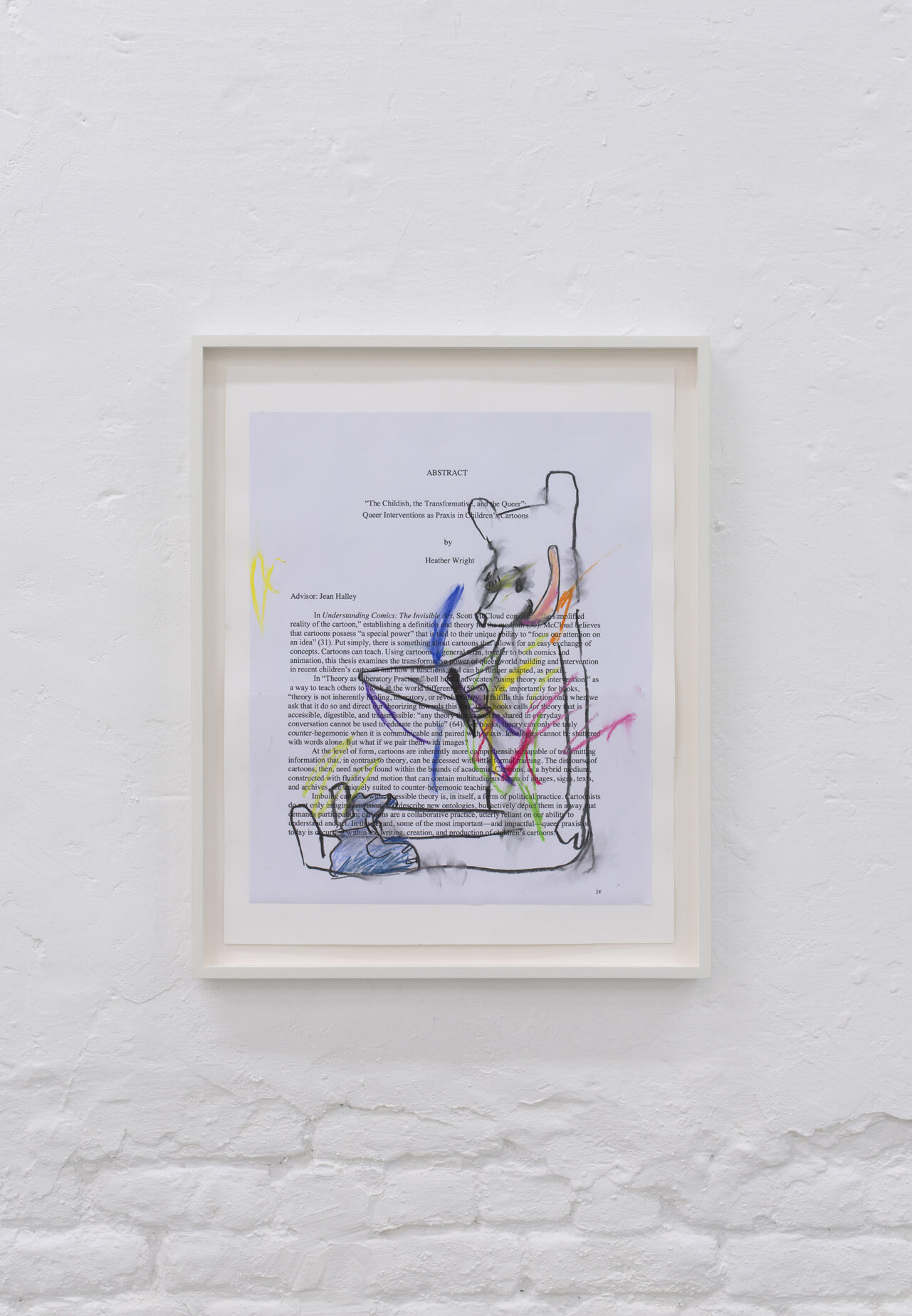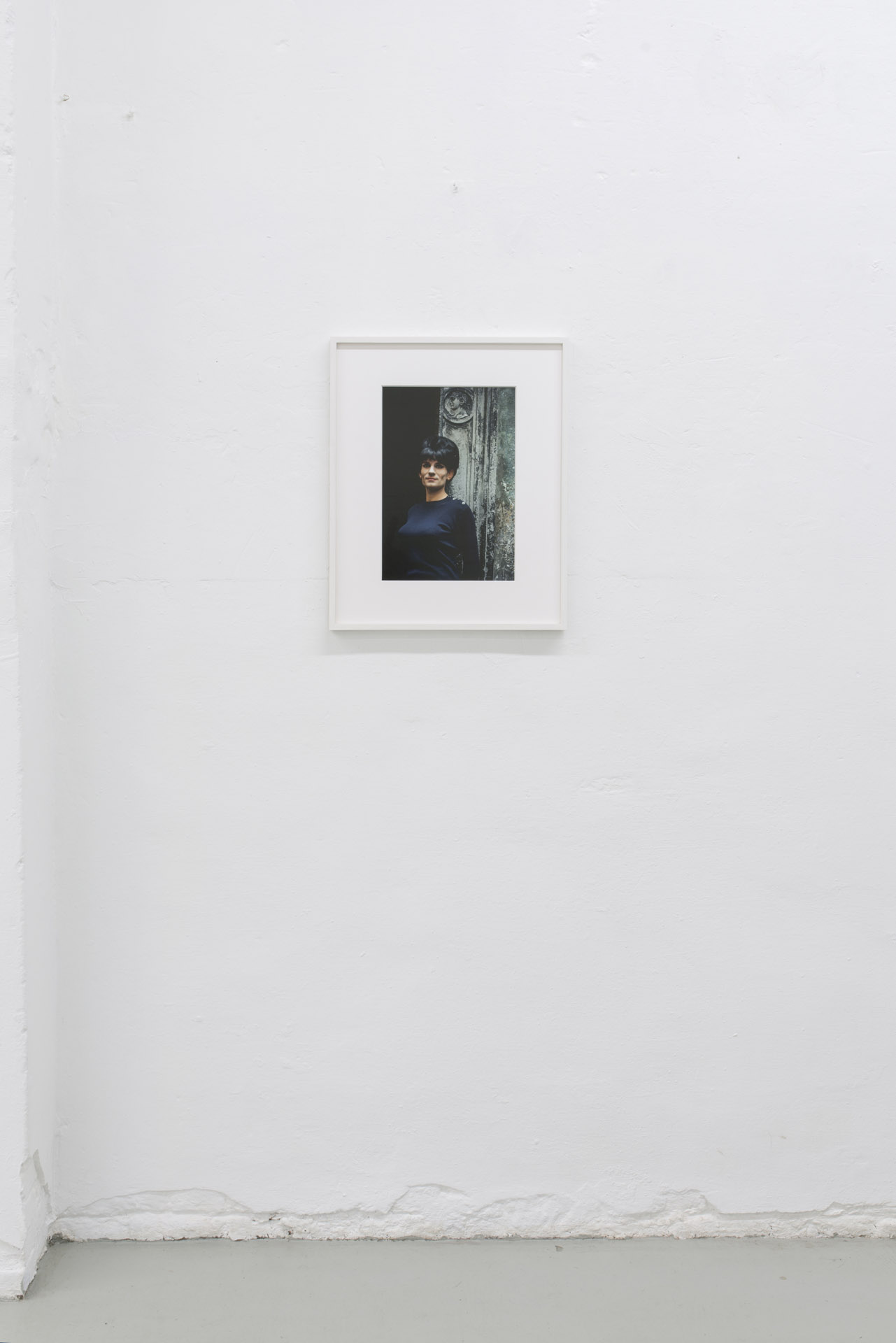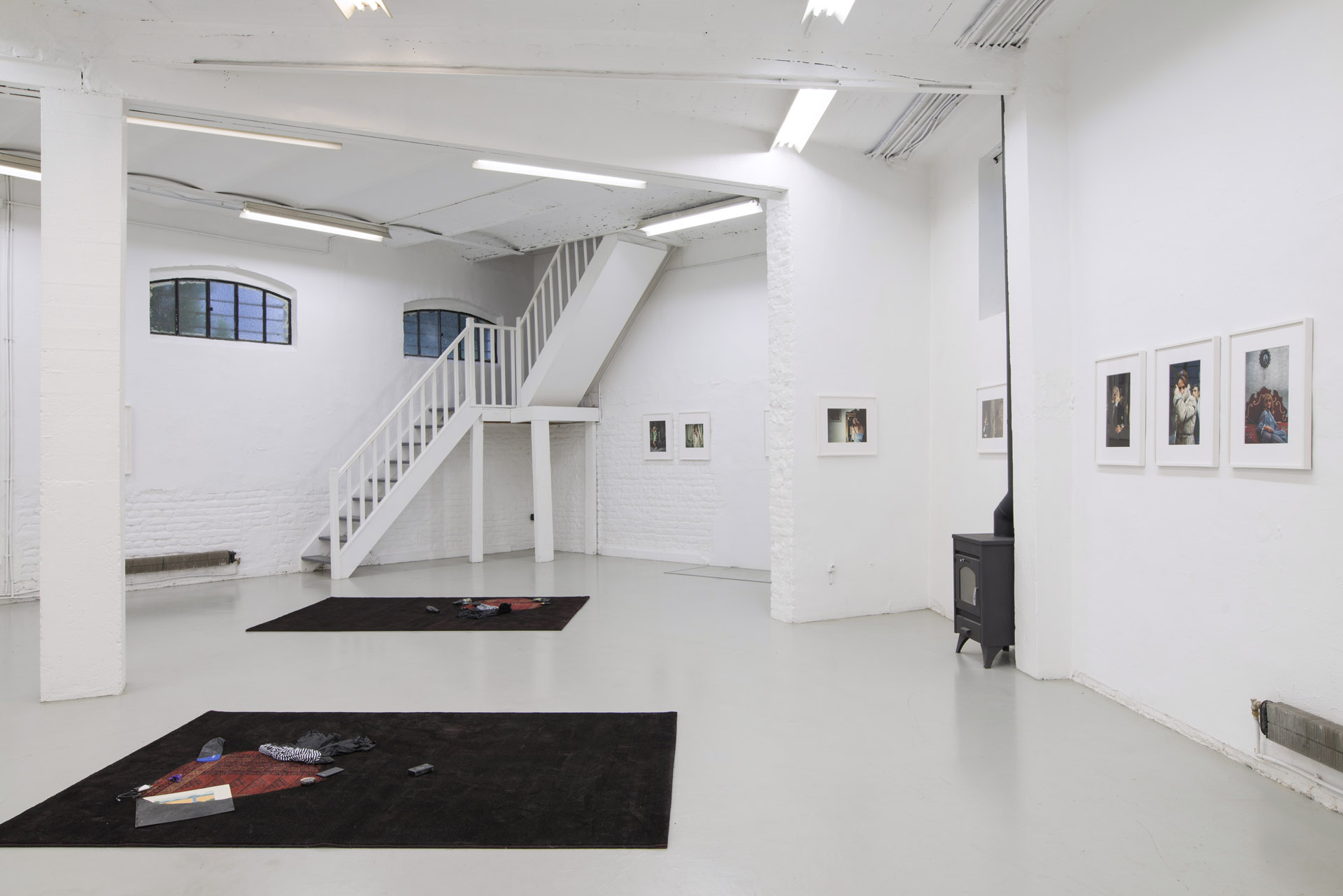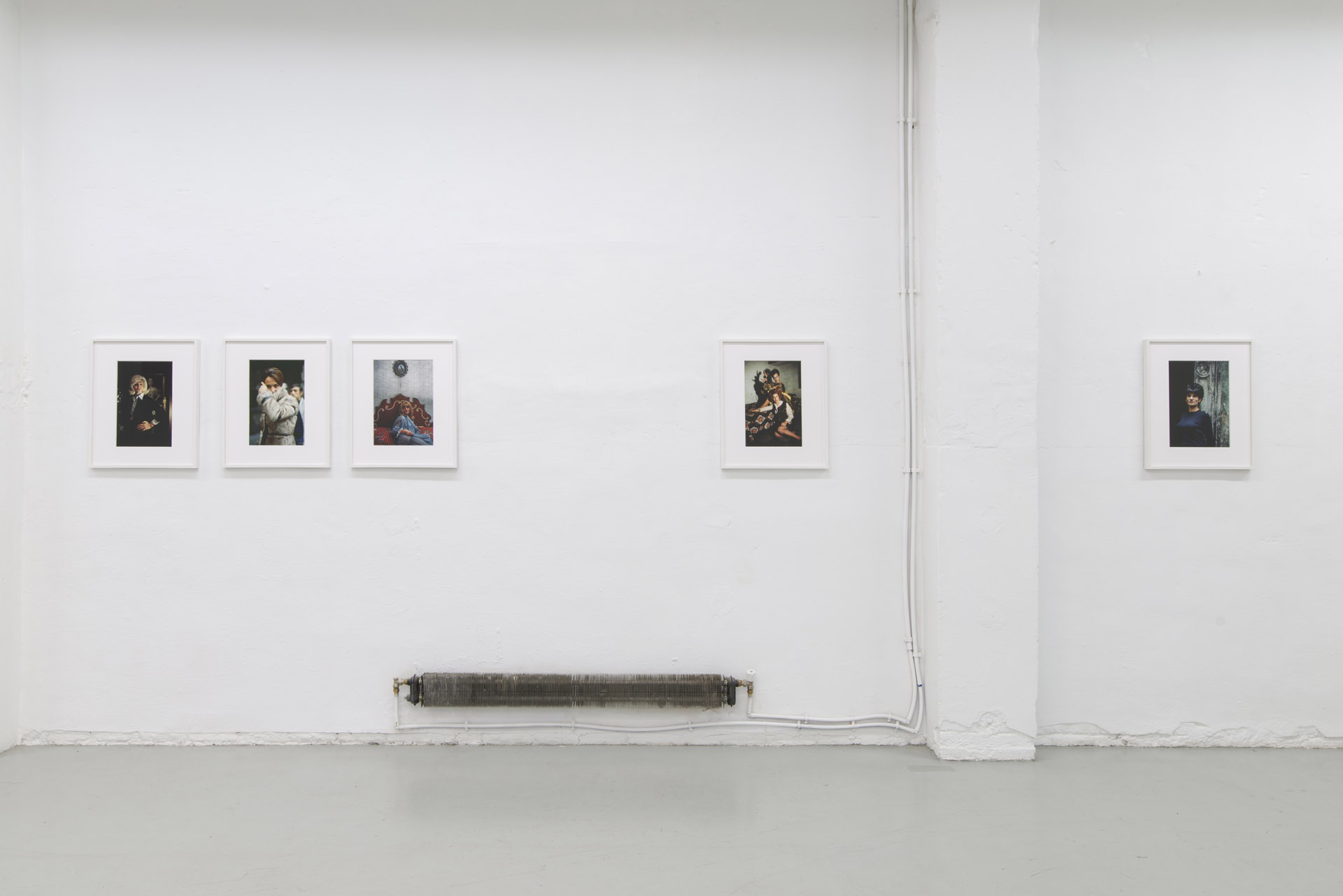Artists: Lisetta Carmi, Latifa Echakhch, Simon Fujiwara
Exhibition title: and on the eyes black sleep of night
Venue: Dvir Gallery, Brussels, Belgium
Date: November 10 – December 23, 2021
Photography: all images copyright and courtesy of the artists and Dvir Gallery
Dvir Gallery is pleased to present ‘and on the eyes black sleep of night’ an exhibition of Lisetta Carmi, Latifa Echakhch et Simon Fujiwara.
Lisetta Carmi
Dvir Gallery is pleased to announce the collaboration with Lisetta Carmi’s archives.
Lisetta Carmi was born in 1924 to a Jewish family in Genoa. Having initially studied music, Carmi became a fairly famous concert pianist before turning to photography in the 1960s. Although her career as a photographer lasted only eighteen years, it resulted in a major body of work.
Carmi saw photography as an important tool for ‘understanding’ reality. The sole purpose of her gaze was to give a voice to the voiceless, highlighting social injustices. Among her most important series of photographs are those on the theme of work: Genova Porto (1964), in which she focuses on the difficult working conditions of the port workers, and the series Italsider (1962), dedicated to capturing the most ‘spectacular’ and dangerous processes in Genoa’s steel industry. In the series Erotismo e autoritarismo a Staglieno (1966) she proposes an unconventional reading of funerary statuary, through the images of the sculptures in the historical cemetery of Genoa. She also made a series of famous portraits of Ezra Pound for which she won the Niépce prize, as well as portraits of Lucio Fontana, Leonardo Sciascia, Claudio Abbado, Luigi Nono, Sylvano Bussotti and Jacques Lacan. The indomitable desire to understand and to explore drives Carmi to Europe and to distant countries such as Israel, Latin America, Afghanistan and India. Her images remain an indispensable tool for the historical knowledge of these places and realities.
Dvir Gallery is delighted to present, in a group exhibition (10 November to 23 December), one of her most important series – I Travestiti – shot in Genoa from 1965 to the early 1970s. It is an intimate and deeply sensitive meditation on sexual identity. The honesty of her gaze and her empathy caused this photographic essay to be related to works of photographers such as Christer Strömholm and Nan Goldin.
As the artist wrote in 1972: ‘It is true that transvestites dress up, but it is out of necessity. But it takes courage to do what they do, and to face the often dramatic and violent consequences. Many of them have no alternative in finding a job: as men they look too feminine, and as women they face the obstacle of being registered as men on their identity card. They face an incredible loneliness, because society seeks them out and isolates them, forcing them to live in ghettos (in Genoa, their neighbourhood is in fact the former Jewish ghetto); it is afraid to see itself in them. It uses them, pays them, judges them, deliberately ignoring the fact that they are human beings. But I think that when we judge others, we almost always judge ourselves: what we fear in others is something in ourselves. And we always react by insulting the part of ourselves that we reject’ (Lisetta Carmi, quoted on the back cover of I Travestiti, Essedì Editrice: Rome, 1972, free translation).
Lisetta Carmi was the first to photograph the transgender community. Sexual identity was a taboo for the society of the time, which in Italy was deeply Catholic and very conservative.
What Carmi manages to convey are the mixed feelings of her subjects: not about their sexual identity, but about the joy of finding a moment to express it, and to capture it in a photograph that will record the moment that cannot be lived permanently, at least not without painful social consequences. These bittersweet emotions are often born of loneliness, but Carmi has taken care to depict an element often missing from early representations of transgender women: a sense of community. Her subjects are seen helping each other dress and apply make-up, smiling and kissing, tenderly expressing their love in the bedroom or enjoying a man’s embrace.
Lisetta Carmi’s photographic research was also, to some extent, a path of introspection and self-discovery related to the experience of being a woman in a deeply sexist culture. As she herself wrote: ‘The transgender community taught me to accept myself. When I was little, I looked at my brothers Eugenio and Marcello and I wanted to be a boy like them. I knew I would never get married, and I couldn’t accept the role that was expected of women. These transvestites helped me to understand that we all have the right to decide who we are.’
Latifa Echakhch
Latifa Echakhch thinks of objects as traces of gestures, of past moments. ‘Several Times’ is constructed like a memory that one remembers and that changes slightly as time goes by, with details that become clearer, others that are repeated, others that are erased, others that interfere. It is the memory of several similar scenes, mixing between them, several times the same, but another.
Like a cartography on the ground, intimate territories are drawn by carpets, isolated islands becoming scenes of a past event. Elements are arranged there, in the manner of objects on pedestals. They are partially covered with ink. Only one area remains intact with the original colors, a bit like a lit spot in a dark room, a spotlight on a stage. Latifa Echakhch’s process, reminiscent of Giordano Bruno’s Ars Memoriae techniques, which consist in building links between objects, characters and architecture in order to precisely remember the whole scene, is almost cinematic. The spaces of the mats are like screens. The non-inked areas seem to move on the carpet space as you walk around, like the movement of a projector on a film scene.
Winner of the Marcel Duchamp Prize in 2013 and the Zurich Art Prize in 2015, Latifa Echakhch will represent Switzerland at the Venice Biennale in 2022. Her first major exhibition in Belgium took place at BPS22 In Charleroi in 2020. Latifa Echakhch has presented her work at Kunsthalle Mainz (2019), Wanås Konst Park, Knislinge (2019), Fondazione Memmo, Rome (2019), Museum Boijmans, Rotterman (2018), KIOSK, Gent (2018), Villa Sauber – Nouveau Musée National de Monaco (2018), 15th Istanbul Biennale (2017), Haus Konstruktiv, Zurich (2016), Swiss Institute, New York (2015), Centre Pompidou, Paris (2014 – 2015), Palazzo Grassi, Venice (2014), Musée d’art contemporain de Lyon (2013) and Hammer Museum, Los Angeles (2013). Latifa Echakhch’s first major exhibition in Belgium took place at BPS22 in Charleroi on February 1, 2020. She will represent Switzerland at the Venice Biennale in 2022.
Simon Fujiwara
Simon Fujiwara’s acclaimed project, ‘Who the Bær’, was developed during Lockdown in spring 2020 and was the focus of a major exhibition at Fondazione Prada, Milan, and Kunstinstituut Melly, Rotterdam.
In this new body of work, the artist has created a unique comic book character in the form of a denim bear with a golden heart and an uncontrollably long tongue, who has no gender, race, sexuality or even a clear design. Without an identity, Who exists only as an image, a status that gives her the freedom to roam an online world, appropriating characters, identities, aesthetics, and disguises in an avid search for a ‘self’. Like other beloved and iconic cartoon characters, Fujiwara has created a fairytale world for Who the Bær that manifests itself in drawings, collages, sculptures and animations. Like other iconic cartoon characters, Fujiwara has created a fairytale world for Who the Bær, which manifests itself in drawings, collages, sculptures and animations. Through Who the Bær, Fujiwara explores complex issues using the logic of the cartoon universe to expose the normalizing power of the capitalist image culture in which we live.
Fujiwara’s existential cartoon character oscillates between subject and symbol, being and thing, and is a tool for the artist to investigate cultural anxieties around identity and its relationship to the performativity of image culture. Made with an instinctive and responsive hand, this exhibition focuses largely on collaged works that present us with the basic tenets of her persona through a meme-like, cut-and-paste aesthetic. In a fragmented and thematic environment of oversized bear cutouts, we discover the pleasures and traumas, violence and joys of life in the modern mediated world through the absurd adventures of a cartoon bear.
Simon Fujiwara has had numerous solo exhibitions. He has exhibited at the Fondazione Prada (Milano), Kunstinstituut Melly (Rotterdam), Blaffer Art Museum (Houston, TX), Kunsthalle Düsseldorf (Düsseldorf), Tokyo Opera City Art Gallery (Tokyo). He has participated in numerous group exhibitions at MAXXI (Rome), Solomon R. Guggenheim Museum (New York City), Musée National d’Art Moderne – Centre Georges Pompidou (Paris), Hamburger Bahnhof (Berlin).
Fujiwara has been a finalist for the Preis der Nationalgalerie at Hamburger Bahnhof in 2019. His works are included in many prestigious collections: Tate Collection, London; MoMa, New York; Solomon R. Guggenheim Museum, New York; Sammlung Verbund, Vienna; The Israel Museum, Jerusalem; Galeries Lafayette, Paris; The Prada Collection, Milan.
Lisetta Carmi, Latifa Echakhch, Simon Fujiwara, and on the eyes black sleep of night, 2021, exhibition view, Dvir Gallery, Brussels
Lisetta Carmi, Latifa Echakhch, Simon Fujiwara, and on the eyes black sleep of night, 2021, exhibition view, Dvir Gallery, Brussels
Lisetta Carmi, Latifa Echakhch, Simon Fujiwara, and on the eyes black sleep of night, 2021, exhibition view, Dvir Gallery, Brussels
Lisetta Carmi, Latifa Echakhch, Simon Fujiwara, and on the eyes black sleep of night, 2021, exhibition view, Dvir Gallery, Brussels
Lisetta Carmi, Latifa Echakhch, Simon Fujiwara, and on the eyes black sleep of night, 2021, exhibition view, Dvir Gallery, Brussels
Lisetta Carmi, Latifa Echakhch, Simon Fujiwara, and on the eyes black sleep of night, 2021, exhibition view, Dvir Gallery, Brussels
Lisetta Carmi, Latifa Echakhch, Simon Fujiwara, and on the eyes black sleep of night, 2021, exhibition view, Dvir Gallery, Brussels
Lisetta Carmi, Latifa Echakhch, Simon Fujiwara, and on the eyes black sleep of night, 2021, exhibition view, Dvir Gallery, Brussels
Lisetta Carmi, Latifa Echakhch, Simon Fujiwara, and on the eyes black sleep of night, 2021, exhibition view, Dvir Gallery, Brussels
Lisetta Carmi, Latifa Echakhch, Simon Fujiwara, and on the eyes black sleep of night, 2021, exhibition view, Dvir Gallery, Brussels
Lisetta Carmi, Latifa Echakhch, Simon Fujiwara, and on the eyes black sleep of night, 2021, exhibition view, Dvir Gallery, Brussels
Lisetta Carmi, Latifa Echakhch, Simon Fujiwara, and on the eyes black sleep of night, 2021, exhibition view, Dvir Gallery, Brussels
Lisetta Carmi, Latifa Echakhch, Simon Fujiwara, and on the eyes black sleep of night, 2021, exhibition view, Dvir Gallery, Brussels
Lisetta Carmi, Latifa Echakhch, Simon Fujiwara, and on the eyes black sleep of night, 2021, exhibition view, Dvir Gallery, Brussels
Lisetta Carmi, Latifa Echakhch, Simon Fujiwara, and on the eyes black sleep of night, 2021, exhibition view, Dvir Gallery, Brussels
Lisetta Carmi, Latifa Echakhch, Simon Fujiwara, and on the eyes black sleep of night, 2021, exhibition view, Dvir Gallery, Brussels
Lisetta Carmi, Latifa Echakhch, Simon Fujiwara, and on the eyes black sleep of night, 2021, exhibition view, Dvir Gallery, Brussels
Lisetta Carmi, Latifa Echakhch, Simon Fujiwara, and on the eyes black sleep of night, 2021, exhibition view, Dvir Gallery, Brussels
Lisetta Carmi, Latifa Echakhch, Simon Fujiwara, and on the eyes black sleep of night, 2021, exhibition view, Dvir Gallery, Brussels
Lisetta Carmi, Latifa Echakhch, Simon Fujiwara, and on the eyes black sleep of night, 2021, exhibition view, Dvir Gallery, Brussels
Lisetta Carmi, Latifa Echakhch, Simon Fujiwara, and on the eyes black sleep of night, 2021, exhibition view, Dvir Gallery, Brussels
Lisetta Carmi, Latifa Echakhch, Simon Fujiwara, and on the eyes black sleep of night, 2021, exhibition view, Dvir Gallery, Brussels
Lisetta Carmi, Latifa Echakhch, Simon Fujiwara, and on the eyes black sleep of night, 2021, exhibition view, Dvir Gallery, Brussels
























